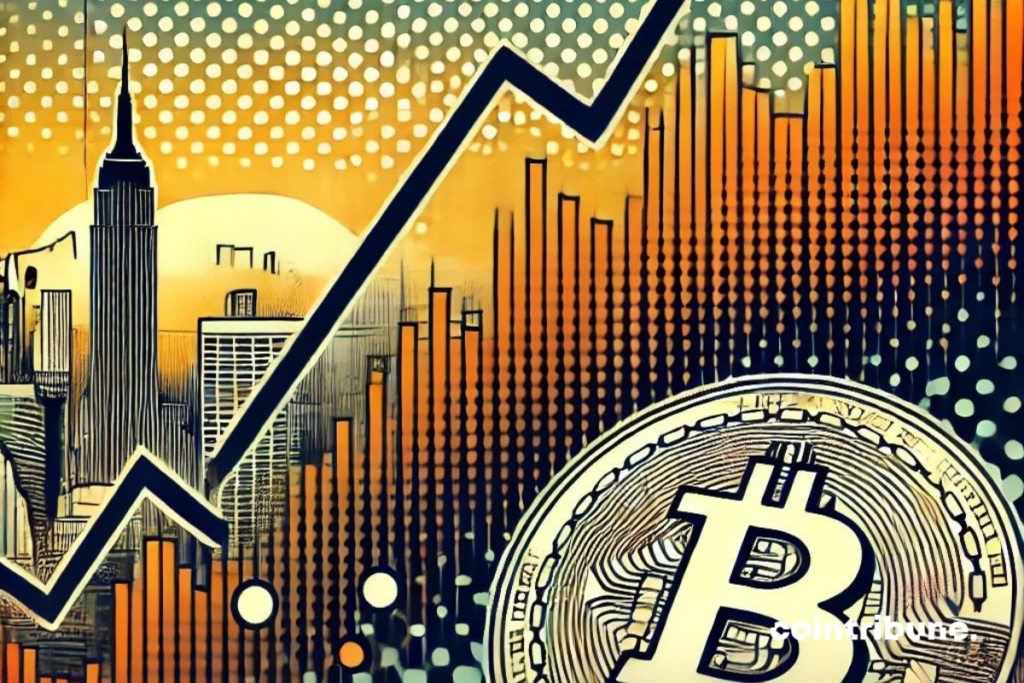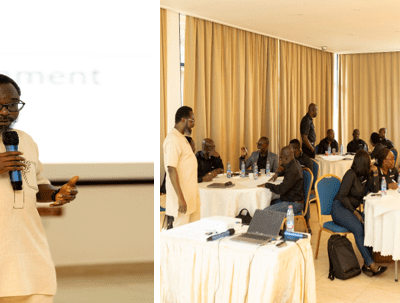7h00 ▪
4
min read ▪ by
When Goldman Sachs, one of the most influential institutions on the planet, adjusts its economic forecasts, it is never insignificant. The bank has just revised down its estimates of recession risk in the United States, bringing the latter to 20%. A decision motivated by reassuring economic indicators, but one that raises important questions for the crypto market, and particularly for Bitcoin, often considered a safe haven in the face of financial turmoil. While some see it as an opportunity, others worry about the implications of a possible economic slowdown.

A revision in response to positive economic signals
Goldman Sachs, which invested millions in Bitcoin ETFs last week, has also lowered the probability of a recession in the United States to 20%, down from 25% previously. This revision comes after the release of encouraging economic data, notably July retail sales, which unexpectedly rose by 1%, far exceeding analysts’ expectations. In addition, weekly unemployment claims hit a one-month low, signaling continued resilience in the U.S. labor market. For Goldman Sachs economists, these indicators show an economy that, despite global uncertainties, continues to surprise with its robustness, thus justifying a downward adjustment in the risk of recession.
This change in perspective reflects increased confidence in the ability of the U.S. economy to navigate current turbulence without slipping into an imminent recession. However, Goldman Sachs remains cautious. Jan Hatzius, the bank’s chief economist, emphasizes that the decision to revise down this risk could be reinforced or adjusted again based on upcoming economic reports, particularly September employment data. Thus, although the economy appears to be on a more stable trajectory, vigilance remains essential in the face of the complex and often unpredictable dynamics of the markets.
The repercussions on Bitcoin and the crypto market
While Goldman Sachs’ downward revision of recession risk may seem favorable for traditional financial markets, its impact on Bitcoin remains more nuanced. This revision, although positive, is unlikely to trigger a rush to risk assets, including cryptocurrencies. The crypto market, often seen as an alternative refuge or speculative asset, may not react uniformly to this economic news. Crypto investors remain vigilant, particularly in times of uncertainty where interest rate fluctuations can have contrary and unpredictable effects on Bitcoin’s valuation.
If Bitcoin traders might hope to benefit from a cut in interest rates in September, this prospect is far from risk-free. Indeed, a rate cut could also be interpreted as a harbinger of a broader economic slowdown, which has historically not always benefited Bitcoin. In 2019, during the last series of rate cuts by the Fed, Bitcoin initially surged by 20% before falling back, ending the year down 35% from its peak. These precedents show how volatile and unpredictable market reactions can be, making any prediction risky.
Maximize your Cointribune experience with our “Read to Earn” program! For every article you read, earn points and access exclusive rewards. Sign up now and start earning benefits.
Diplômé de Sciences Po Toulouse et titulaire d’une certification consultant blockchain délivrée par Alyra, j’ai rejoint l’aventure Cointribune en 2019.
Convaincu du potentiel de la blockchain pour transformer de nombreux secteurs de l’économie, j’ai pris l’engagement de sensibiliser et d’informer le grand public sur cet écosystème en constante évolution. Mon objectif est de permettre à chacun de mieux comprendre la blockchain et de saisir les opportunités qu’elle offre. Je m’efforce chaque jour de fournir une analyse objective de l’actualité, de décrypter les tendances du marché, de relayer les dernières innovations technologiques et de mettre en perspective les enjeux économiques et sociétaux de cette révolution en marche.
DISCLAIMER
The views, thoughts, and opinions expressed in this article belong solely to the author, and should not be taken as investment advice. Do your own research before taking any investment decisions.





